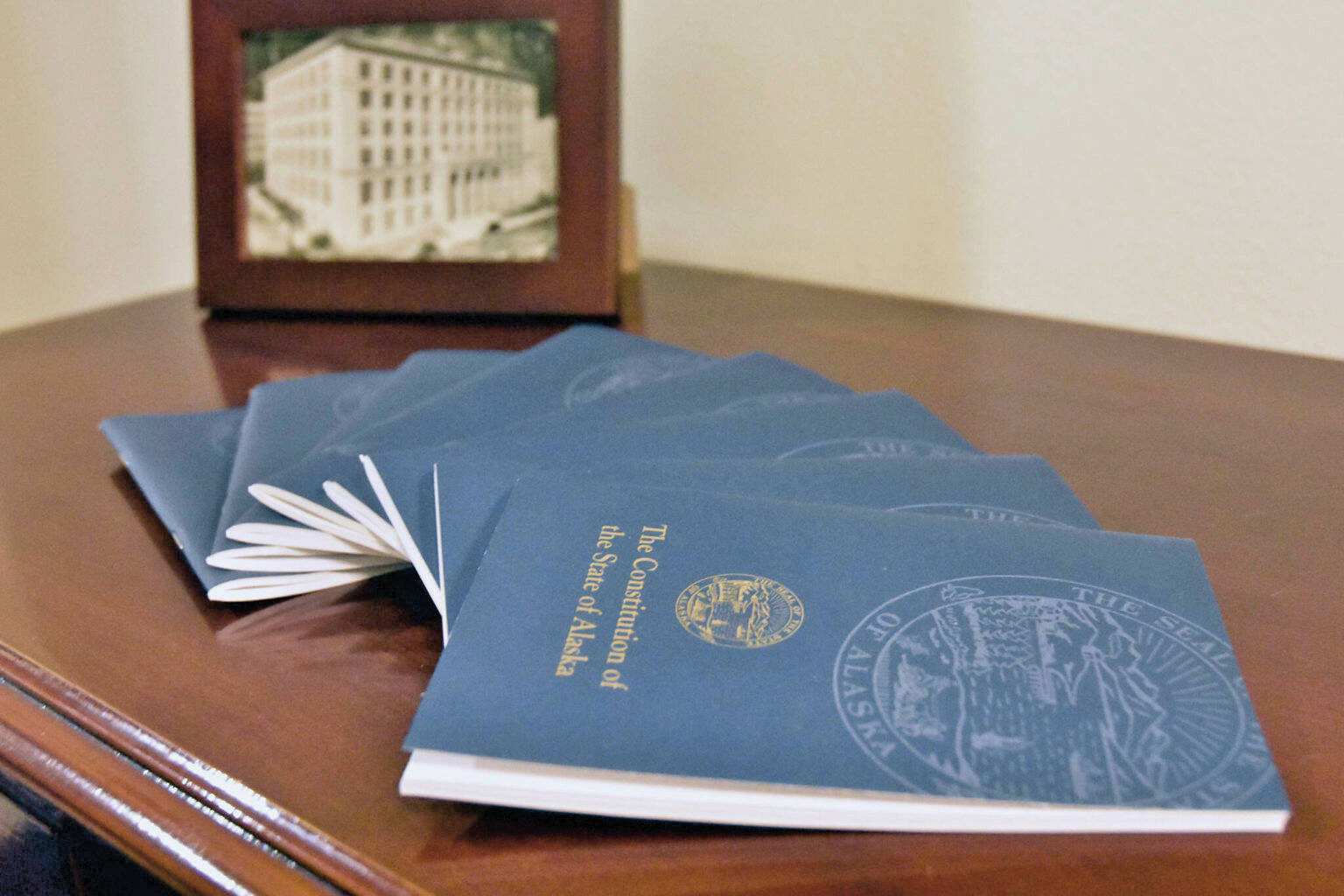By Gordon Harrison
The Alaska Constitution was written by a monthslong gathering of 55 elected men and women in Fairbanks during the winter of 1955-1956. When it was completed, it was heralded nationally as a model of a modern state constitution. Sixty-six years later our constitution is still highly regarded throughout the country. Many states have adopted features of it that are now considered essential for effective state government. Why is our constitution such a good one?
Above all, delegates to the original constitutional convention wanted to rid Alaska of the powerless, anemic territorial government that was Congress’s gesture of self-government to Alaskans in 1912. The federal government never relinquished control of the territory’s resources — its land, minerals, forests and fisheries. The governor, who had veto power over acts of the Legislature — as did the U.S. Congress — was an employee of the U.S. Department of the Interior. The territorial Legislature was helpless to prevent the exploitation of Alaska’s wealth by corporate conglomerates in New York, Seattle and San Francisco.
The delegates understood that self-determination would only come through a strong state government. They wanted robust institutions that would give Alaskans real autonomy over their own affairs. They wanted the cities and towns to have the maximum possible measure of local control. They wanted a Legislature free of the fetters that hobbled the older state governments — restraints that had prompted a nationwide outcry for constitutional reform in the years prior to the Alaska Constitutional Convention. They wanted a popularly elected governor with strong formal powers who presided over a centralized administrative system. They wanted a competent, professional and independent judiciary, not the sort that usually results when judges are elected or appointed arbitrarily by governors.
Also, the delegates wanted a constitution that would accommodate the rapid change and development that they rightly foresaw in Alaska’s future. Never far from their minds were the challenges and opportunities that the new state would face. This meant the constitution must be confined to basic, fundamental matters of government structure and operation. It must be short and concise, uncluttered with details that would hamstring the state in coping with the future. Accordingly, the constitution gives broad grants of authority to the Legislature to fashion the details of government, and to change them when circumstances call for change.
As a result, we have a constitution that creates effective and capable institutions of state and local government; that protects our individual liberties; that enshrines the public interest in the management of our natural resources; that ensures fair and impartial justice; and that gives our Legislature and governor the ability to cope with the pressing issues of the day. It is a constitution that reflects the aspirations of dedicated Alaskans — one that we can all be proud of, and thankful for.
Gordon Harrison has studied and written about the state constitution for 40 years. He is the author of “Alaska’s Constitution; A Citizen’s Guide.” He resides in Juneau.

